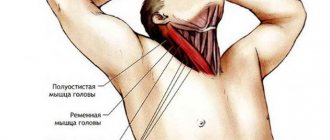Freud's Oedipus complex
This is the hidden sexual attraction of a 3-6 year old boy towards his mother and ambivalent emotions during the same period towards his father in the form of love and hatred at the same time.
The stage of adoration of the mother as a woman and jealousy of her man, even if he is your own father, is necessary for the proper development of the child’s nervous system and his adaptation in the family and in the world around him as an independent individual.
Causes
While the child is small, he often has more contact with his mother .
As the child grows up, she realizes that her attention goes not only to him, but also to the father and other family members - because of this, the child’s proprietary interests clearly suffer.
This is how he learns that he is not the center of the universe for his mother and other people and, naturally, this greatly shocks him for some time.
At the same time, the boy tries to copy the behavior of the older man in the family towards his wife, therefore he pays attention to his mother both as a child and as a man. But at the same time, she gradually begins to realize that she treats him differently than her husband.
The child is unable to understand the reason for the difference, and confusion in feelings brings him a lot of unpleasant moments.
How do parents provoke its development?
Approving of his son's abnormal behavior.
How can the course of the complex worsen:
- By condescending observation of how the child is openly or covertly trying to push the father away from the mother . If dad starts fawning over his son or playing along with his son, which is contrary to nature, the child will be afraid in his soul both for the burden of ill-imagined responsibility and for guilt before his father. Although outwardly it will demonstrate triumph. In the future, such a policy of the father will become the reason for disrespect for him and reluctance to copy his male line of behavior.
- Agreeing to let the child into your bed . Mom and dad's bed is their personal territory. And, of course, the baby may be angry and offended by the ban on sleeping under his parents’ side, but this rule must remain unbreakable.
- An unreasonable hope of marriage with a son in the future. Even in a joking manner, you cannot tell your child that you will marry him when he grows up.
The focus on healthy relationships should be laid from infancy. So that the child does not feel rejected, they must explain to him that mom and dad are a couple, and when he grows up, he will definitely find his soul mate and love her. - Ridiculing my son's feelings. Parents must respond adequately to excessive manifestations of love, but at the same time not hurt the dignity of the little person.
- Lack of normal family relationships between the child’s parents. A tyrant father and a mumble father will have an equally bad influence on the further development of the child. For example, in both cases, such a model of behavior may be rejected by the child as worthy of copying.
- If a boy is raised only by his mother, then she, consciously or unconsciously, can turn him into the head of the family. Thus, frequent repetitions of phrases like “you are my only support” elevates the child in his own eyes, but imposes too many psychological obligations on him.
It can also influence the formation of a subconscious idea of the mother as a female partner for marriage. In the future, this thought form can prevent a man from starting his own family. For example, he will be tormented by neurosis due to guilt for “cheating” on his first woman, or he will develop sexual impotence due to associating his partner with his mother - and this is incest.
Read about the rules of empathic listening here.
How to correct the Oedipus complex?
In the theory of psychoanalysis, Freud names the main reason for the formation of the complex. It is designated as a “developmental conflict,” which meant that the child had no association with the same-sex parent. In other words, the child must copy the behavior, character and actions of the parent of the same sex. This is how the superego is formed, which, in essence, is the internal moral authority. As a result, the impulses of the Oedipus complex are suppressed, and the person acts in accordance with idealistic standards. According to Sigmund Freud, this is a condition under which a successful, healthy personality can be formed.
A child with a superego develops a general sense of conscience, good and evil. External influences also contribute to the suppression of the Oedipal complex. These could be social norms and religion. Freud at the same time suggested that feelings suppressed in this way could lead to the formation of unconscious guilt. This may not be felt openly, but it will manifest itself in every possible way in a person’s actions.
In any case, you should not self-medicate. You can’t cover a problem in psychology with a Band-Aid. Thinking, conscious and unconscious, is an extremely fragile mechanism. And it needs to be handled properly.
Signs
Main features:
- It is manifested by serious, from the boy’s point of view, statements about his intentions regarding living together with his parent as a life partner.
- If a child is naturally shy, the mother can guess about his fantasies thanks to the increased attention from the son, expressed, for example, by active help around the house , the desire to cuddle closer than usual during hugs, etc. At the same time, cases in relation to the father may become more frequent unreasonable aggression or demonstrative disobedience in various situations.
- pseudophobias “bloom” - it is convenient for the child to use fictitious fears so that the mother devotes more time to him.
For example, I read longer at night, allowed me to sleep in my parents’ bed, and always took my hand on the street. - During this period, the child may often think about the partial or complete removal of the father from participation in the life of the family , which can result in fantasies with a sad and even tragic ending at the end of fictitious stories.
- If the manifestations of the Oedipus crisis are not eliminated correctly and on time, with the advent of adolescence, an unconscious strong craving for the mother will appear again , but in a different form. The son will in every possible way poison the life of the parent with his antics, rude and even boorish communication, without having a specific goal and, in fact, not receiving any pleasure from it.
What does the word sublimation mean? Find out the answer right now.
Why the Oedipus complex in adolescence?
On the eve of the next seminar in the series “A Psychoanalytic View of the Problems of Adolescence,” we bring to your attention review articles on issues that will be raised in Alexandra Oksimets’ report “The Work of Adolescence . We hope that this information will be of interest to you and will help make our discussion at the upcoming meeting fruitful and exciting.
On this important topic in his article “Why the Oedipus complex in adolescence? Its Relevance, Evolution, and Emergence in Treatment,” reflects Marsha H. Levy-Warren, Ph.D., psychologist, educator, and author of numerous papers on adolescent development.
Sigmund Freud discovered the most important personality-forming structure in the human psyche and called it the Oedipus complex.
It has become one of the central concepts in psychoanalytic theory and practice. In literature and clinical discussions we often encounter a persistent idea of the Oedipus complex as a constellation that relates to the experience of young children. However, the concept of the Oedipus complex can be seen much more broadly: as a set of problems that arise in early childhood and recur throughout development .
Marsha Levy-Warren suggests thinking of the Oedipus complex as a combination that first develops in early childhood but then continues to develop and transform throughout the life cycle. This transformation reflects how we change the way we think about ourselves and objects over time. The most important ways are those that reflect our basic understanding of ourselves, both as gendered and sexual beings and as people in intimate relationships.
The Oedipus complex is generally considered to be a combination of internal relationships and fantasies that develop between the ages of 2 and 6 years. Marsha H. Levy-Warren believes that it is necessary to view the Oedipus complex as a structure that first forms in early childhood and then continues to develop and transform throughout the life cycle. This transformative construct reflects the ways in which we change our self and ideas about objects over time. Of great importance are the ideas that reflect our basic sense of ourselves as gendered and sexual beings and as people in intimate relationships.
During the early oedipal phase, tensions between children and their parents increase. Children at this age tend to think in black and white, their cognitive organization does not allow much ambiguity: their desire is great to love their parents unambiguously. The conflictual mixture of negative and loving feelings that accompany the Oedipus complex confronts children with an urgent need to explain, suppress and put in order confused affective states. To reduce tension, children develop theories about why their parents have a special relationship. These conscious theories calm children, allowing them to worry less about their parents' lives and focus more on their own activities as they develop. Children's solutions to the problems of the early Oedipal era, regardless of historical time and place, are based on the existence of separate worlds for children and adults.
Children decide that there are activities that belong to the adult world, and there is knowledge that is temporarily unattainable. They become less preoccupied with their parents, establishing that there is a form of relationship that is exclusively adult. Basically, since it's an adult relationship, a relationship between two big people, they don't have to worry about it because they're still small. The theories of this time go into the far corners of the children's consciousness, and latency begins.
The central significance of the Oedipus complex in early childhood is that it is the first of many times in a person's life when there is cognitive and emotional growth that fundamentally changes the perception of both the sociocultural world and the internal world. There is a revolution in consciousness , and this revolution has the effect of insight.
The fundamental changes in consciousness, interpersonal experience and identification that are the basis of the Oedipus complex occur for the first time in early childhood. They then develop and transform during adolescence and are repeated throughout adult life.
The most important issues of the Oedipal phase - issues of exclusivity, jealousy, passionate relationships, aggression, and so on - wax and wane throughout development. Each time these questions arise in consciousness, there is a reintegration of the previous experience with the experience of the present; in each renaissance, children, then teenagers, then adults reformulate their ideas about relationships, sex, and gender-role identity. To achieve this transformation, they use the resources at their disposal to understand their inner and outer lives.
Throughout the life course, these changes are accelerated by physical maturation, development, and life circumstances. But, perhaps, it is precisely in adolescence that the actualization of the Oedipus complex is most turbulent and dramatic. This is due to the fact that for the first time a grown-up child begins to feel the power of hormonal activity, feels how the body grows and changes. At this time, a constant revision of ideas about oneself, that is, mental images of one’s body, is necessary. As teenagers grow intellectually and emotionally, they are increasingly able to imagine themselves as part of an intimate couple, and this transforms their sense of self.
As children experience growth spurts and other bodily changes as they reach puberty, they must begin to reorganize their self-image to become aware of their current position, appearance, and internal feelings and sensations. They begin to see themselves no longer small, but quite large, that is, quite comparable in size to their parents.
Jamaica Kincaid's (1983) novel Annie John beautifully describes the way this process can begin in the early stages of adolescence:
“The summer of the year I turned twelve, I noticed that I was taller; most of my clothes no longer fit. When I could pull the dress over my head, the waist reached just below my chest. My legs became thinner, the hair on my head was even more unruly than usual, small tufts of hair appeared under my arms, and when I sweated, the smell was strange, as if I had turned into a strange animal…. One day my mom and I went shopping for material for new dresses to celebrate her birthday... when I came across a piece of fabric... I immediately said how much I loved it and how good it would look on both of us, but my mom replied, “ Oh no. You're too old for this. You just can’t look small for the rest of your life!” To say that I felt the ground disappear from under my feet would be too little. It wasn't just what she said. It was the way she said it! No accompanying laughter. She didn’t lean over and kiss my wet forehead…. My mother informed me that I am on the verge of becoming a young lady, so there are quite a few things that I will have to do differently."
How eloquently this passage describes the experience of sensations when the body becomes larger and the gender is more defined. This experience is full of pain of loss and fear of change. The main character is particularly focused on her parent's loss of ability to make close bodily contact. All teenagers who reach puberty must come to terms with the fact that they are leaving behind their childhood “little self” with a body whose gender is not very defined and the pleasant experience of affectionate physical contact with parents.
Thus, at this time, Oedipal explanations , which were based on the idea that there are separate worlds for adults and children, become unsatisfactory. These former children develop more mature bodies and perceive themselves as more mature in spirit and behavior. Their gender identification becomes more focused on “adult” ideas about gender expectations. This leads teenagers to realize that their parents are just ordinary. Such discoveries are filled with mixed feelings, as reflected in the words of a 14-year-old patient in his early teens:
... You know, I used to think that my father was the biggest, strongest, smartest man. And, of course, I couldn’t think otherwise. Every time I asked a question, he had an answer. I remember every time a plane flew in the sky above us and I asked it where it was going...he told me!? I mean: how did he know? Now I feel that he is wrong in at least half of his answers. And he's getting so old. I'm stronger than him, and bigger too. This is weird. Sometimes it seems like he's shrunk or something. I don't know. It's like... I don't even have a father or something...
In this vignette there are elements of competition, greatness and smallness, disappointment, an Oedipal desire for "death" and a sense of loss that should be part of our understanding of the complex structure of Oedipus that recurs throughout life. For the teenage version, we must pay special attention to the reality of the change in height. For boys, for example, the influx of additional strength and size makes it difficult to maintain the same idealized father image, making the possibility of "defeating" their fathers more real. Expanding the knowledge base gives the feeling that teenagers can learn more than their parents in various areas.
It is symbolic that the transition to adolescence is the “death” of childhood and, of course, the death of early ideas about life. There is a need to commit symbolic parricide to solve the problems of the Oedipus complex: the actual destruction of parental authority and participation in the child’s life. In order for children to function autonomously: tying their own shoes, feeding themselves, bathing, etc., the feeling that parents need to perform such parenting roles must be eliminated. What children experienced passively through interaction with their parents, they now must actively and independently accomplish. It is no longer possible for young people to view the privileges and pleasures of childhood as eternal, nor for parents in their previously overvalued and pervasive roles. Parents no longer occupy the same role in their children's lives; they too must cope with this loss.
How teenagers develop their thoughts about who their parents are, as well as their growing interest and understanding of who they are
are, make significant changes in their internalized object relations. Adolescence clearly has a powerful influence on the identifications and fantasies that shape the Oedipal situation, especially in relation to the erotic.
But all this Oedipal drama of adolescence can be experienced with a fairly good experience of relationships with its objects: when the Ego does not lose the ability to cope with the onslaught of Id impulses and attacks of the Super-Ego. Adolescents who have had such experience as disrupted or insufficient find themselves in the analytical office, and then they are forced to resort to defense mechanisms that do not allow them to go through the next Oedipus successfully and carry out this internal transformation. (Article from the journal "Studies in Gender and Sexuality" (2008))
Why is it dangerous?
Secretly, the boy begins to dream about the disappearance of his father, but at the same time he feels like a traitor to the latter.
At the same time, being able to evaluate the world purely through a personal prism, the child “reasonably” suspects that the father has the same thoughts, but in relation to the offspring.
So many contradictions cause discomfort in a fragile psyche, very exhaust the child , and instill in him fears that he will soon become an outcast in his own family.
In addition, he experiences difficulties with the next line of behavior - children need examples to understand the direction of the desired path of development.
In the absence of behavior correction and a clear understanding at a young age of one’s secondary importance in the triangle of mother - her husband - their son, acceptance of this state of affairs and awareness that this is correct, the Oedipus complex will manifest itself in an adult man, bringing him new suffering.
Residual traits in adulthood
Manifestations in adult men:
- Difficulties in relationships with the opposite sex . Each new partner will be studied through the prism of matching or mismatching the physical and psychological traits of the mother. And even if the features of the first are perceived as satisfactory, the partners’ life together will be full of special problems. For example, a man will be highly influenced by his mother and will agree to her active participation in his own family life.
- Homosexuality . Such an outcome is possible either due to the father’s lack of an adequate acceptable example of behavior or due to excessive love for the mother. In the first case, the boy may begin to identify with his mother and choose a feminine line of behavior. In the second case, preference for same-sex partners develops due to a subconscious strong reluctance to offend the mother by having a relationship with another woman.
- Hidden neurosis that manifested itself with the birth of a joint child . A wife, hiddenly associated with her own mother, paying a large share of attention to the newborn, can provoke in a man hatred of his own offspring.
- Masochistic tendencies , impairing the ability to build normal relationships in friendship and marriage.
As if punishing himself for his secret love for his mother, the man subconsciously looks for partners who turn his life into a branch of a madhouse. - Difficulties in intimate life. The Oedipus complex is “to blame” for the existence of many sexual inversions.
- Rude behavior when communicating with the opposite sex , the desire to suppress a partner in everything is a frequent manifestation of being stuck in a crisis, revenge on the mother for inaccessibility and on the father for the lack of male influence on behavior.
How to overcome perfectionism? Advice from psychologists will help you!
Revision and variations
Modern psychoanalysts, as well as psychoanalysts of directions different from the classical Freudian direction, look at the concept of the Oedipus complex differently, introducing their own elements into it or redistributing emphasis on existing ones.
Carl Gustav Jung
Carl Gustav Jung pointed out that Freud's Oedipus complex cannot adequately describe a similar stage in girls (according to Freud, girls at this stage of psychosexual development experience homosexual attraction to their mother). In connection with this, in 1913, Jung introduced a new term - the “Electra complex”, according to which a girl, like Agamemnon’s daughter Electra, experiences sexual attraction to her father and hostile impulses towards her mother.[3] In addition, while recognizing the presence of a sexual aspect, Jung considered it only a derivative of the symbolic desire to return to the source of life.[12]
Alfred Adler
Alfred Adler pointed out that Freud's Oedipus complex neglects the influence of siblings on a person's mental life.[9] Subsequently, Adler completely reformulated all the processes affected by the Oedipus complex in the terms and concepts of his school. He argued that the interpretation of the Oedipus complex should be based solely on the spoiled state of the child, and that, moreover, the Oedipus complex is nothing more than one of many manifestations of spoiling. The sexual aspect comes into force for the reason that a spoiled child, accustomed to the satisfaction of all his desires, quickly matures sexually, and the provocative caresses of the mother only intensify the manifestation of the mentioned phenomena. Based on these considerations, Adler wrote:
“The Oedipus complex is not a cornerstone, but simply a vicious, unnatural result of maternal connivance.”[12]
Erich Fromm
Erich Fromm, recognizing Freud's observations of the manifestations of the Oedipus complex as correct, nevertheless proposed to understand the Oedipus complex not so much in a narrow sexual sense, but in a broader sense, according to which the essence of incest in the Oedipus complex is that the individual strives to remain a child, attached to protective figures (not necessarily just the mother).[9] This affection is mainly non-sexual. The conflict between father and son, according to Fromm, is a product of an authoritarian patriarchal society, in which the son is considered as the property of the father. And this conflict, in turn, has little to do with sexual rivalry, but is an expression of the individual’s desire to defend his independence and freedom.[12]
Melanie Klein
Melanie Klein was one of the first psychoanalysts to emphasize that Freud's Oedipus complex, like Freud's entire theory, underestimates the influence of the mother in the mental life of the individual; she also criticized Freud's use of the boy as a developmental model. In addition, Klein came to the conclusion that oedipal relationships can be observed even in the first years of a child’s life:
“I have repeatedly mentioned that the Oedipus complex begins to act earlier than is usually believed. In my last article, “Psychological Principles of Child Analysis,” I examined this issue in detail. The conclusion I came to was that Oedipal tendencies arise from the frustration experienced by the child when he is weaned, and that they become apparent at the end of the first and beginning of the second year of life."[13]
Klein believed that from the age of seven months (when the baby begins to develop cognitive abilities) he begins to understand that the object (mother) and part-object (breast) do not belong only to him and that he must share them with someone else. As a result of this understanding, an Oedipal tendency arises in the baby in the form of jealousy towards the mother. Subsequently, in Melanie Klein’s theory, the Oedipus complex was given secondary importance, and its main component became the so-called “depressive position.”
Otto Rank
Otto Rank questioned the Freudian position that the father's castration threats were key to the formation of the superego. Instead, he adhered to the view that in the normal development of the super-ego, first of all, the image of a strict mother (that is, not a real one, but the one as the child understands her in a sadistic aspect) takes part.[12] Later, Rank deviated even further from classical Freudianism when he questioned the primary importance of the Oedipus complex as such in the mental life of the individual. According to Rank, the key factor in the formation of all neuroses is the so-called birth trauma, which was a consequence of the rejection of the child from the mother’s womb, and the analogue of the Freudian incestuous drive is the individual’s desire to return to the mother’s womb.[14] Rank also developed ideas similar to those of Erich Fromm. According to Rank, the child strives for the parent who infringes less on his individuality. In the case of a boy, such a parent, as a rule, turns out to be the mother, since the father treats his son as an extension of his ego. On this occasion Rank wrote:
“Parents fight openly or covertly for the soul of the child in a biological (opposite sex) or egoistic sense (same sex); the child accordingly uses the parents and turns them against each other in order to save his individuality.”[12]
Karen Horney
Karen Horney criticized both the sexual connotation of the Oedipus complex and Freud's view of the biological determination of its occurrence, stating that the absence of a biological determination of the phenomenon can be asserted with confidence.[12] She also pointed out that the Oedipus complex is not the primary formation and the cornerstone factor in the emergence of neuroses, but only the child’s reaction to certain processes in family relationships: the mother’s desire to make the child an object of blind affection, the child’s observation of sexual scenes, etc. In conclusion, one of the of his works, Horney writes:
“...The Oedipus complex cannot be considered a source of neurosis, since it itself is a neurotic formation.”[15]
That is, according to Horney, the Oedipus complex is a consequence of neurosis, and not its cause. Another point of criticism of Karen Horney was Freud's understanding of the development of the Oedipus complex in girls, which she considered completely incorrect, "the result of a distorted understanding of female psychology" and "the product of male narcissism."[16]
Oedipus complex within the framework of modern psychoanalysis
As noted above, modern psychoanalysts recognize the significant role of the Oedipus complex in human psychosexual development. However, some points of Freud's theory have undergone revision and revision. Thus, many psychoanalysts reject the thesis about the universality and biological determination of the Oedipus complex.[9] The concept of the development of the Oedipus complex in females also does not find unanimous support.[17] In general, many psychoanalysts understand the concept of the Oedipus complex more freely than it was understood by Freud: often this concept is used in the broadest sense, for example, in the context of designating and characterizing the entire gamut of relationships between a child and his parents.[9] Also, unlike classical psychoanalysis, the focus of the source of the Oedipus complex has shifted from biological to sociological.











